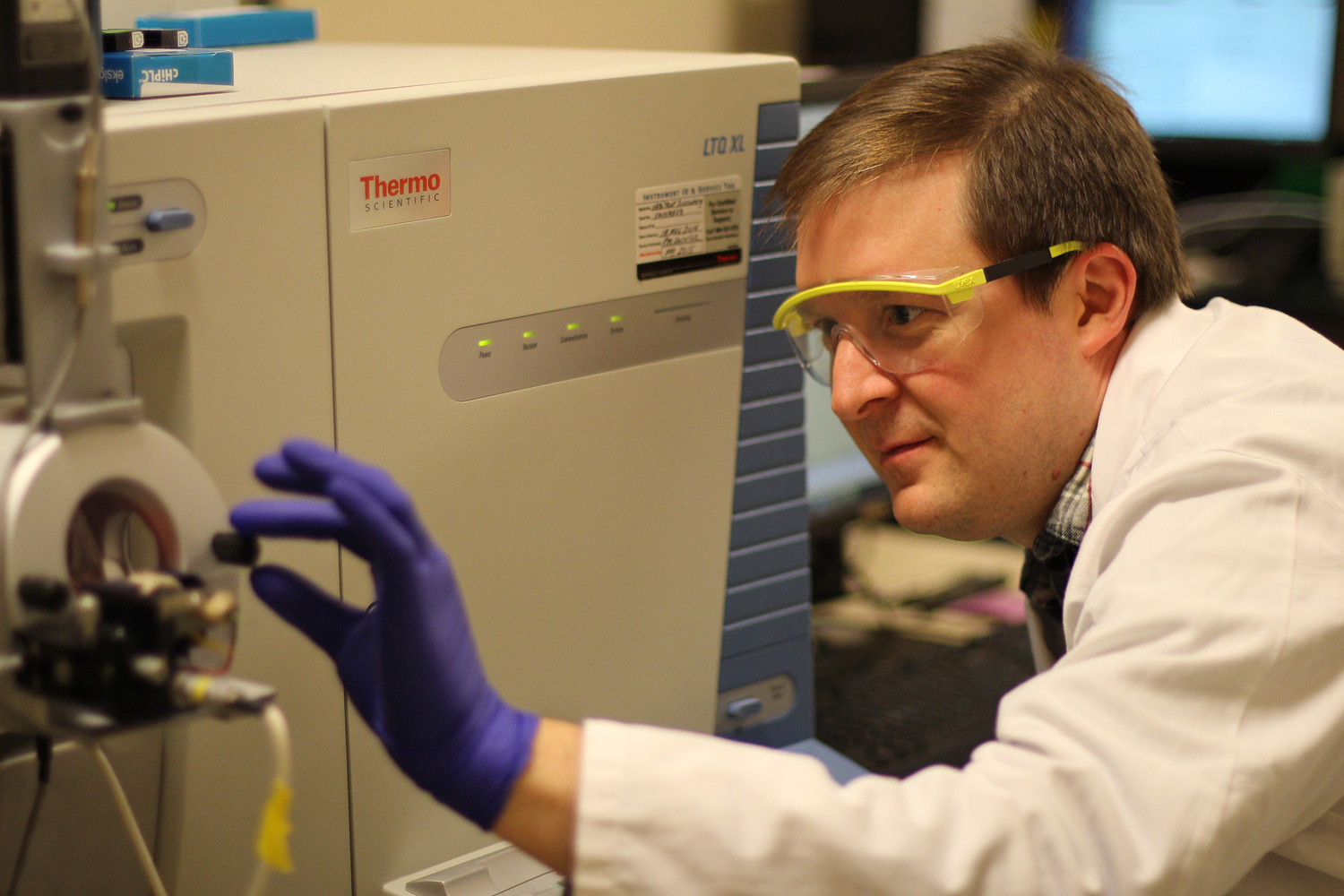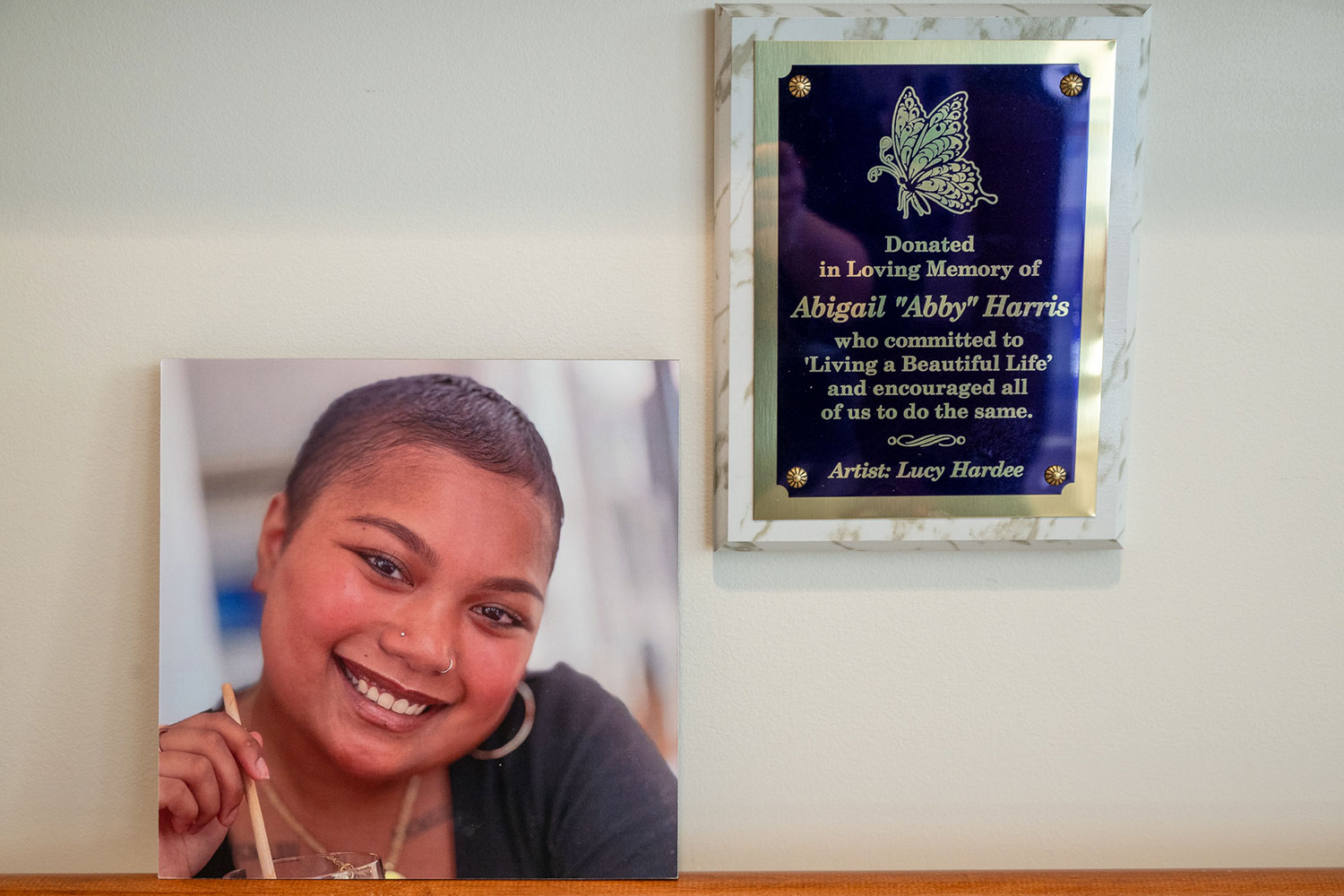Matthew Berberich ’00 (CLAS) never imagined when he was an undergraduate at UConn that he would one day work in the field of immunology, much less on a research team tasked with finding a cure for HIV/AIDS.
The psychology and physiology and neurobiology double major initially set his sights on learning about the intricacies of the brain. He was drawn to courses on the biology of the brain and the science of sleep, and he even conducted an independent study on animal behavior, not knowing how his interests would translate into a career.
“I was the first person in my family to make that leap into science, so I didn’t have a clear idea of what my next steps could be,” he says. “Now that I have that experience, I can try to help current students develop realistic expectations of careers in science.”
Berberich does this by sharing his experiences with UConn students at CLAS career series panels and through one-on-one advising sessions with students looking to work in a lab after graduation. His goal is to alert them to opportunities for professional growth in the workplace that will help them chart a course for a fulfilling—and sometimes unexpected—career path.
“I really value having the chance to let them know about certain pitfalls and things that I learned along the way to my current job,” he says.
Berberich is a senior research technologist for the Ragon Institute, a research center supported by Massachusetts General Hospital, Massachusetts Institute of Technology, and Harvard University that is dedicated to the multidisciplinary study of global health epidemics. There he performs protein biochemistry experiments, analyzing cells that carry evidence of bacteria or viral infections like HIV/AIDS and tuberculosis.
“We compare these diseases and try to determine how we can alter immune system responses to clear these infections,” he says, adding that he was able to switch fields to immunology because of his initial background and early work experience.
Berberich’s first job was at Yale University, where he worked in a diagnostic core laboratory dedicated to analyzing protein samples submitted by other research labs on campus. Berberich says that he did not know that this job option existed as a student, and that he applied for the position after a recruiter contacted him through the UConn Center for Career Development.
Though the move was unintentional, he says that it became a crucial step between his broad undergraduate education and his graduate studies, inspiring him to pursue master’s degrees related to protein biochemistry at Southern Connecticut State University and New York University.
“Graduate school is great if you have a particular focus, but most of the students I talk to don’t have a clear view of what they want to study,” he says. “I encourage them to consider openings at universities as lab technicians. By working with graduate students and postdocs, you can learn different techniques that can guide your interests.”
Berberich says that his position at Yale helped him to not only become interested in a new area of science, but also recognize what work conditions are most conducive to his professional success.
“Your enjoyment of science can be affected by your lab environment. If you find yourself working in a lab that is not a good fit for you, you will spend years being miserable,” he says.
He tells students that lab employees are exposed to a variety of environments, managerial styles, and job duties that can help them determine their work style preferences. They can also gain a better sense of what level of education is required to achieve their ultimate career goals.
“Not everyone needs a Ph.D. to be successful. It depends on how you define success for yourself, whether you like working with your hands or taking a more administrative role,” he says.
In addition to learning about their personal preferences, Berberich says that young professionals who work in research laboratories should seek out skills that can be applied across disciplines. He says that working with scientific equipment in labs at UConn and Yale helped him prepare for his current job, and will help him stay versatile in the job market as priorities change for research funding sources over time.
Berberich also advises current students to build their professional networks of colleagues and acquaintances throughout their careers. It’s advice that he takes to heart as he describes networking at professional conferences, UConn alumni events, and even the UConn student career panels, where he meets fellow alumni presenters who work in the sciences.
“I still have a lot of working years ahead of me, and I don’t know what questions I’ll be asking or techniques I’ll be using 10 years from now,” he says. “But that’s one of the things that excites me about a career in science.”



